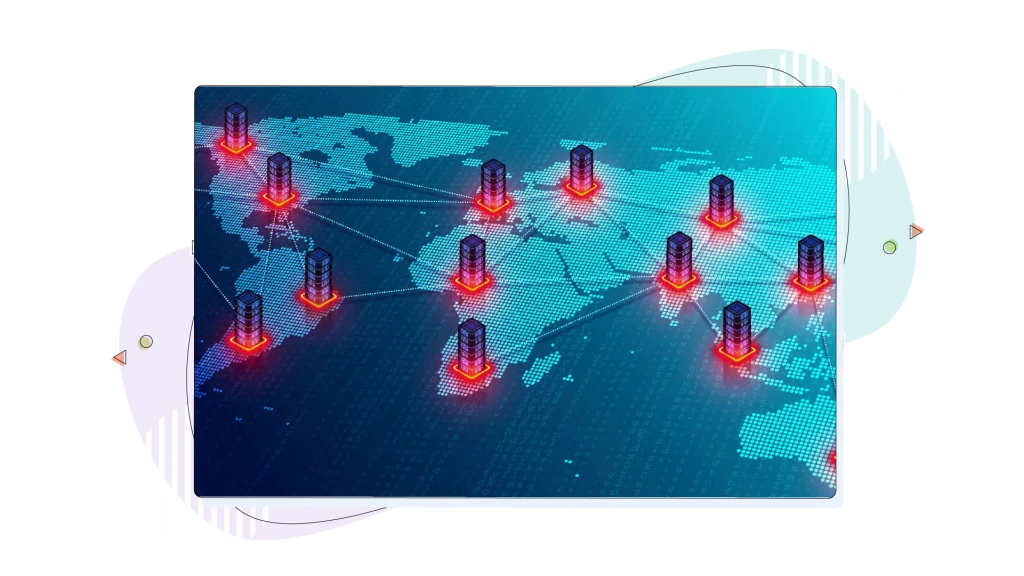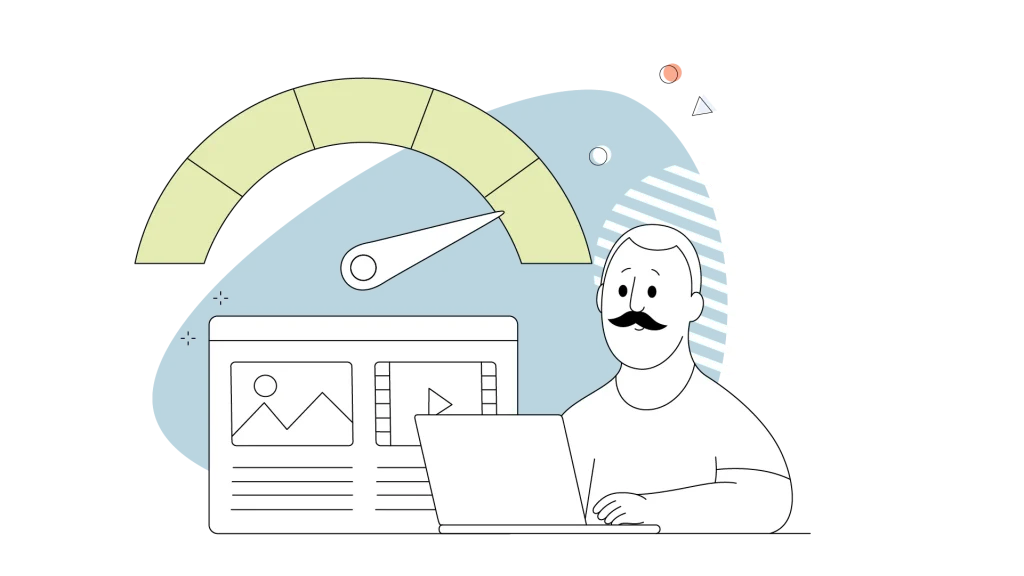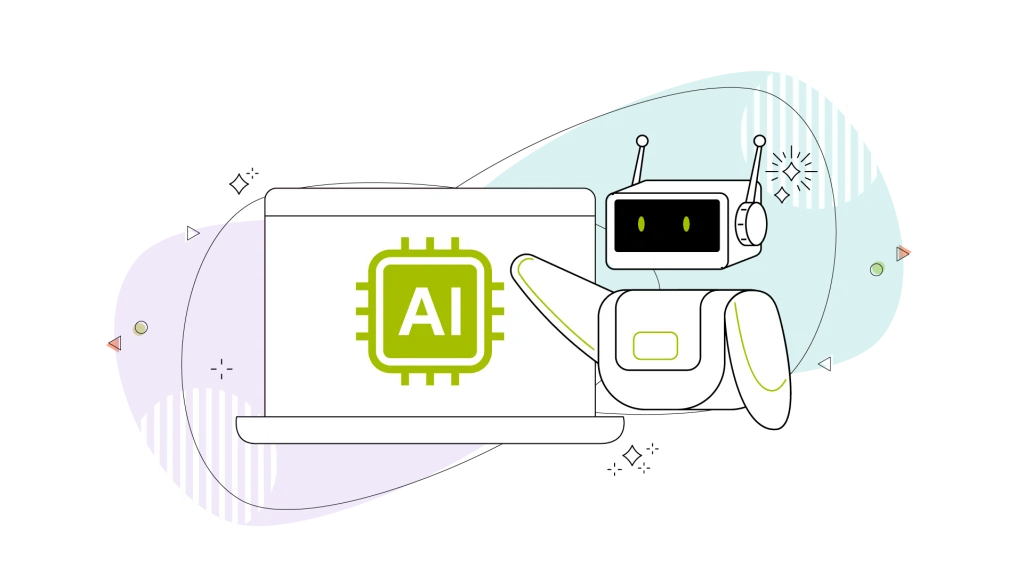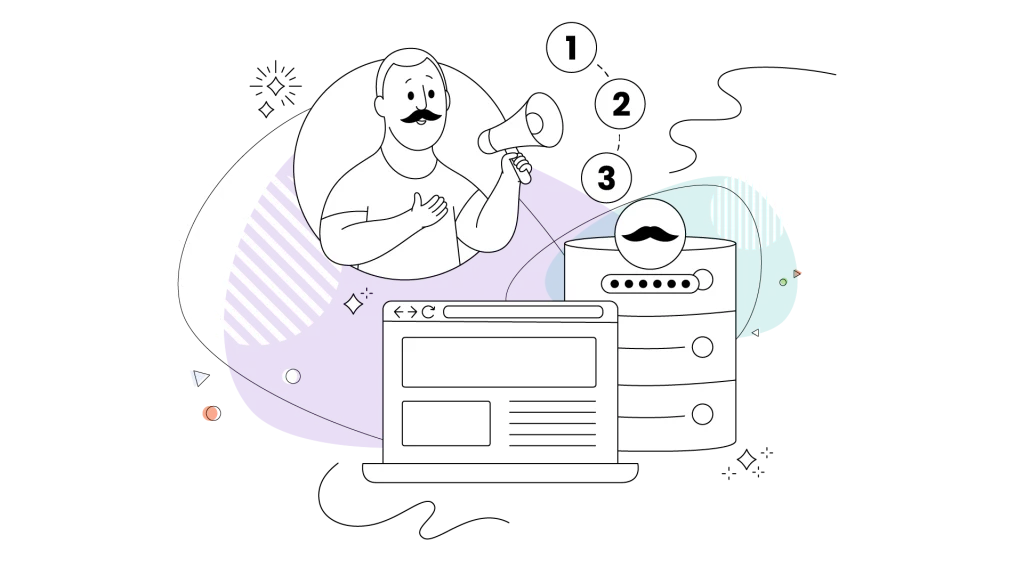You’ve probably been there. Staring at a blank screen, waiting for your website to load. Site speed is a paramount factor that impacts whether visitors stay or leave your website. At the same time, visitors might start fleeing to the nearest competitor, but wouldn’t it be great if your site loaded faster than light?
Or at least… fast?
Well, there is light at the end of the tunnel! We’re here to talk about Content Delivery Networks (CDNs) and why they’re the secret weapon you’ve been missing.
But first, do you even need a CDN?
We’ll break it down for you, then we’ll dive into our top picks for the best CDN providers on the market, including our own HostPapa plans that have a CDN already built in. If you want to learn more about how to choose a web hosting provider, explore our in-depth guide.
- What Is a CDN & Do You Need One?
- What to Look for in a CDN Provider: Main Benefits
- The Best CDN Providers We Recommend
- The Best CDN Provider for WordPress

What Is a CDN & Do You Need One?
Imagine your website’s content, all the images, videos, and text, is stored in a single warehouse in Toronto. If a visitor from Vancouver wants to see your site, their request has to travel all the way across the country. That’s a long trip! The further the distance, the slower the loading time.
A Content Delivery Network (CDN) is a network of servers spread out across the globe, providing global coverage for your website. Discover more about Content Delivery Networks on our blog.
Think of them as mini-warehouses for your website content. When someone in Vancouver wants to visit your site, the CDN serves the content from the closest “mini-warehouse“ in Vancouver. This reduces the distance the data has to travel, making your website load much faster.
So, do you need one? We believe a CDN is a must-have for any website owner. If you have a business that relies on a quick, dependable user experience, or if you have a global audience, including users worldwide, a CDN will make certain your site is always lightning-fast.
A CDN is a simple yet powerful tool for a flourishing online presence, ensuring reliable content delivery. Learn how to boost website performance with Google Search Console.

What to Look for in a CDN Provider: Main Benefits
When you’re ready to find a CDN provider, consider the key features that set top CDN services apart. Evaluating these dominant features will help you maximize CDN benefits for your website.
- Global network coverage. The more edge servers and data centres a CDN has, and the more widely they are distributed across the globe, the faster your site will be for all of your visitors.
- Origin server location. This refers to where your website is originally hosted. You’ll want to choose a CDN with a server location that is physically close to your host. This will amplify the speed and performance of your site.
- Advanced security features. Look for built-in DDoS protection, a web application firewall, built-in security features, and robust security measures such as SSL certificates to keep your website safe from cyber threats.
- Free trial or free tier. Before you commit, you’ll want to vet the service to see if it’s the right fit for your needs.
- CDN performance. You need a provider that can handle a lot of traffic and large file sizes without slowing down. Caching static assets helps optimize content delivery and improve performance. Also, consider unlimited bandwidth, bandwidth usage, and bandwidth costs as important factors for sites with heavy traffic.
- Support and resources. A good CDN provider will have a wealth of resources available, including documentation, tutorials, customer support, and reporting tools. This is necessary if you run into any issues.
- Pricing and scalability. Review the provider’s business plan to guarantee it aligns with your growth and budget needs.
By carefully comparing these key features and evaluating the range of CDN services available, you can fully leverage CDN benefits to optimize your website’s speed, security, and reliability.

The Best CDN Providers We Recommend
If you’re already using a different web host, or you want to add a CDN to a specific site, here are some of our favorite CDN providers. Making a thorough CDN comparison can help you choose the right provider for your needs, whether it’s for software distribution, video streaming, or ad serving.
These CDN providers use multiple servers to enrich performance and security by distributing traffic across their networks. This setup helps absorb and mitigate DDoS attacks, protecting your website.
Content providers often rely on these CDN services for efficient content delivery, traffic management, and robust security features.
1. Cloudflare
Cloudflare CDN is a top choice among CDN providers, and for good reason. Their global network spreads out to over 200 locations, leveraging extensive network resources to make certain your content is delivered quickly and dependably to users all over the world.
The company is also known for its simplicity, flawless integration with existing websites and web applications, and secure content delivery through its global Anycast server network.
They offer a free CDN plan with a lot of features, making it an excellent selection for small businesses and personal blogs by improving performance at no cost. Cloudflare can efficiently deliver static content, enhancing speed and reliability.
You’ll also find advanced security, image optimization, and content delivery services, with paid plans that include advanced features such as additional security tools, performance enhancements, and customization options.
2. Akamai
If you’re looking for a CDN for a large enterprise or a high-traffic website, Akamai is an industry leader. They have one of the largest and most powerful CDN networks in the world, with over 300,000 servers in more than 135 countries.
Akamai’s services include the delivery of media files, video streaming, software distribution, software downloads, and video content, making them ideal for businesses with diverse content needs.
The platform supports both static content and dynamic content, ensuring fast and reliable delivery of everything from cached images to instant personalized data. Akamai also leverages edge computing technology to process and deliver content closer to users, reducing latency and enhancing performance.
Services have the infrastructure to support large-scale operations, offering sophisticated solutions for everything from media delivery to cybersecurity.
While Akamai may be a bit more expensive than other options, paid plans start at a higher tier, but the performance and security you get are well worth the investment for major online operations.
3. KeyCDN
KeyCDN is a solid alternative that focuses on simplicity and speed. They offer a pay-as-you-go pricing model, so you only pay for what you use. This makes it a great choice for websites with fluctuating traffic.
KeyCDN has a clean dashboard and an easy setup process. Their caching features include the ability to cache static resources such as JavaScript files, which helps improve website speed and performance.
They also offer features like real-time reporting, which allows you to measure CDN performance and track the CDN’s performance by monitoring key metrics such as response times, load speeds, and cache hit ratios, so you can keep an eye on your website’s performance at all times.
4. Azure CDN
For businesses already operating within the Microsoft ecosystem, Azure CDN is a logical choice. It leverages Microsoft’s vast global network to deliver content with low latency and high bandwidth, significantly improving site performance.
Azure CDN provides seamless integration with other Azure services like Azure Storage and Azure Web Apps, making it a powerful solution for a business’s complete cloud infrastructure.
It’s also well-suited for a WordPress site, supporting both static and dynamic content to optimize delivery and user experience. By integrating Azure CDN, you can enhance WordPress site performance and overall site performance, reducing load times and improving scalability.
This provider has a user-friendly interface and a wide array of features, including advanced analytics, gzip compression, and security options. Azure CDN also provides live reporting and analytics, allowing businesses to monitor performance and streamline their content delivery strategy.

The Best CDN Provider for WordPress
As a WordPress user, you need a CDN that integrates easily with your site. All of the providers we mentioned above have excellent WordPress integrations. They offer dedicated plugins that make it simple to set up and configure your CDN without any coding knowledge.
Using a CDN is essential for boosting website speed, which is a key factor for WordPress sites. A CDN can also improve performance by optimizing content delivery, reducing latency, and ensuring your site stays online even during high traffic spikes or attacks.
We know how much you love WordPress. We even created an in-depth tutorial to help you accelerate your progress with the CMS, and we’ve gone a step further. We’ve integrated a CDN with most of our WordPress Hosting plans. We have a deep-rooted passion for giving you a flawless web hosting experience.
CDN Performance Optimization
To hone your CDN performance, you’ll need to make use of a few different techniques. Here are some of the principal ways to make your CDN performance better.
- Image optimization. This includes automatic image resizing and caching, which reduces file size and speeds up load times.
- Minification and compression. Minifying your code and compressing your files can dramatically cut down on the amount of data that needs to be transferred.
- Caching and performance. Advanced caching options help reduce the load on origin servers, improving content delivery speed and reliability.
- Monitoring. Be sure to monitor your CDN performance consistently by using real-time reporting and analytics to find areas for improvement, including tracking network security as part of your optimization efforts.
- Multi-CDN strategy. For increased speed and dependability, consider using a multi-CDN strategy. This is where you use multiple CDN providers to deliver content to different regions or users.
CDN Security
Securing your CDN is an imperative part of a good CDN strategy. A CDN can protect you from many cyber threats.
- Web application firewalls (WAFs) and DDoS protection. These features act as a shield between your website and malicious traffic before it infects your website code.
- SSL/TLS encryption. This is compulsory for keeping data secure as it travels between your servers and your users.
- Real-time reporting and analytics. Monitor your CDN security to identify threats as they happen.
- Private CDN. For added security and control, you can use a private CDN, where your content is delivered over a private network.
Conclusion: Find a Fast Plan with a Built-in CDN
At HostPapa, we believe a fast website is a fundamental part of your online success, which is why we’ve built a CDN into our Web Hosting, WordPress Hosting, and Reseller Hosting plans.
This means you don’t have to worry about finding and setting up a separate CDN provider; we’ve done the heavy lifting for you! We’re passionate about giving you a smooth online experience, so you can focus on what you do best: running your business.
We have a broad range of hosting plans, so we have a solution for you, whether you’re just starting out or running a large enterprise. With a CDN included, your visitors will always have a fast and dependable experience on your site.
FREQUENTLY ASKED QUESTIONS
What kind of content can a CDN deliver?
A CDN can deliver static content, which is content that doesn’t change often. This includes images, CSS files, JavaScript files, and videos.
It can also deliver dynamic content, which is personalized data that changes with each user, for example, social media feeds or user-specific shopping cart information. A good CDN will optimize the delivery of both types of content to make sure your website is always fast.
Can a CDN replace my web hosting provider?
No, a CDN is not a substitute for a web hosting provider. A CDN and a web host work together. Your web host stores the main version of your website and all its files, also known as the origin server. The CDN makes a cached copy of that content and stores it on servers around the world, bringing it physically closer to your visitors.
Does using a CDN help my website’s SEO?
Yes, using a CDN can definitely boost your website’s SEO. Site speed is a chief issue in how search engines like Google rank websites. A fast-loading site provides a better user experience, which can lead to lower bounce rates and higher engagement.
This tells search engines that your site is high-quality and dependable, and they’ll rank it higher in search results.
Will a CDN protect my website from all cyber threats?
While a CDN substantially fortifies your website’s security, it doesn’t offer full protection from all cyber threats. A CDN is a powerful defense against things like DDoS attacks, which flood your site with traffic, and it can also protect against other attacks with features like a Web Application Firewall (WAF) and SSL encryption.
However, you’ll still need to use good security practices for your website, such as having strong passwords, keeping your software up-to-date, and using a separate security solution like SiteLock.




